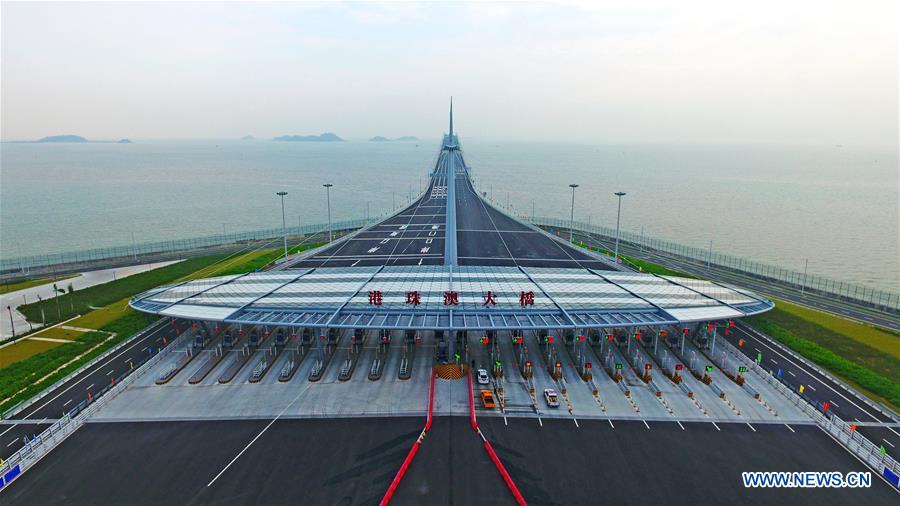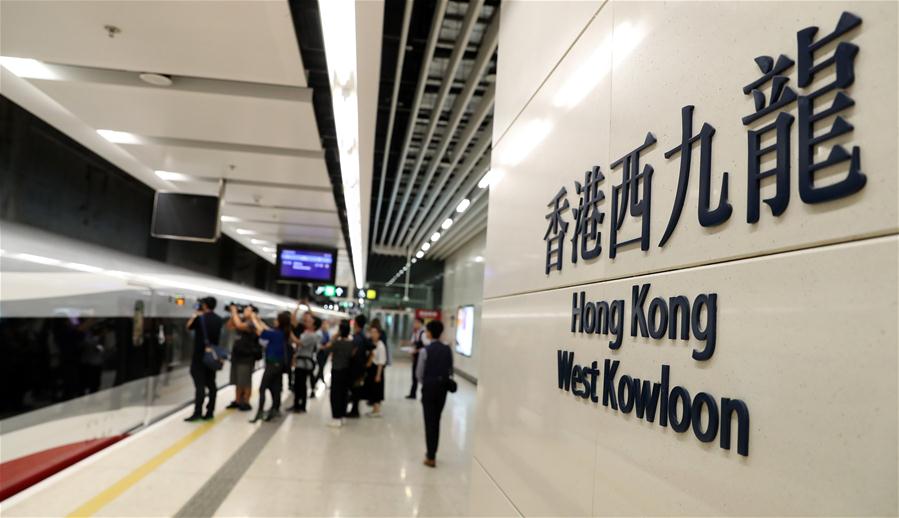Greater Bay Area: Prospects and challenges
- By Mathew Wong
 0 Comment(s)
0 Comment(s) Print
Print E-mail China.org.cn, February 27, 2019
E-mail China.org.cn, February 27, 2019

The recently announced Guangdong-Hong Kong-Macao Greater Bay Area is an ambitious initiative to link different cities in the Pearl River Delta region into a dynamic financial and innovative powerhouse.
As a prominent part of China's national strategic plan, the proposed link involves 11 cities with a combined GDP twice that of San Francisco's Big Bay and close to the similar scheme of New York. The region also has combined trade of US$1.5 trillion, more than three times that of the Tokyo Bay Area. In fact, the combined economic size of the Chinese Bay Area is comparable to Canada as the world's tenth largest economy.
A new vision for Hong Kong's role in the regional cooperation is necessary to achieve mutual benefits and maintain overall competitiveness. As part of the integration plan, a series of large-scale infrastructure and transport projects, in particular the 26-km Guangzhou-Shenzhen-Hong Kong Express Rail Link (Hong Kong Section) and the 55-km Hong Kong-Zhuhai-Macao Bridge, both opened in the second half of 2018, are vital links to facilitate the flow of people, goods, services, and capital.
This in turn allows the concept of a "one-hour living circle" embedded in the Greater Bay Area project to be thoroughly realized. All these infrastructure developments are indeed highly effective in reducing the time and cost of overall integration.
Hong Kong could not afford to be marginalized amid the rapid economic development in the mainland. It is indeed natural for Hong Kong to move closer to the mainland as part of China; indeed, it might also be an inherent responsibility for Hong Kong to help promote national development.
Hong Kong has long fulfilled an historical role as the bridge between China and the international community throughout China's reform and opening-up process, with the mainland providing ample business opportunities, labor, and market.
Nowadays, integrating with the overall Chinese economy is even more inevitable given its dominant position of the world's second largest economy, let alone its ambitious further development programs such as the "Belt and Road Initiative."
Many commentators and analysts in Hong Kong have often pointed to the narrow focus of the local economy on financial services and the real estate sectors. Policymakers have also accepted that Hong Kong lacks a new growth engine and should develop in the direction of high-end and high value-added industries.

Therefore, the coordination and collaboration with the Greater Bay Area could provide precious opportunities for Hong Kong to maintain its entrepreneurial edge and produce game-changing innovations. Under the practice of "One Country, Two Systems," it has strength in positioning itself as a unique Special Administrative Region and contributing to the Bay project, given its free economy, simple, low and favorable tax rates, an independent and well-developed legal system, world-leading financial and professional services, as well as being a highly accessible and efficient regional transportation hub.
However, a responsible government should pay special attention to policy details to maximize the gains and minimize the pains brought by mega projects. For the Greater Bay Area, there is a need to narrow the discrepancies in terms of many institutional, business, and cultural norms across the participating cities.
For example, while the Greater Bay Area promotes closer integration between Hong Kong and other regions, it is also worthwhile to investigate if the unique arrangement of "One Country, Two Systems" would be adversely affected.

Meanwhile, for both the cross-border bridge and the railway, more efforts should be made to ensure the local infrastructure and capacity can accommodate the large influx of visitors, in particular for arrival and exit points like Tung Chung and West Kowloon. Economic benefits brought by these visitors aside, it is important to manage these side effects for local residents to fully endorse the concept of integration.
The Greater Bay Area initiative provides real economic and social benefits for participating cities, though with its own potential side effects as well. Continuous calls for deepening economic integration with the mainland has to be assessed with great care, so that Hong Kong benefits from this economic cooperation without losing sight of its unique global status and continues to contribute to the goal of national development.
Dr. Mathew Wong is an Assistant Professor in the Department of Social Sciences at the Education University of Hong Kong.
Opinion articles reflect the views of their authors only, not necessarily those of China.org.cn.
If you would like to contribute and have specific expertise, please contact us at opinion@china.org.cn.






Go to Forum >>0 Comment(s)